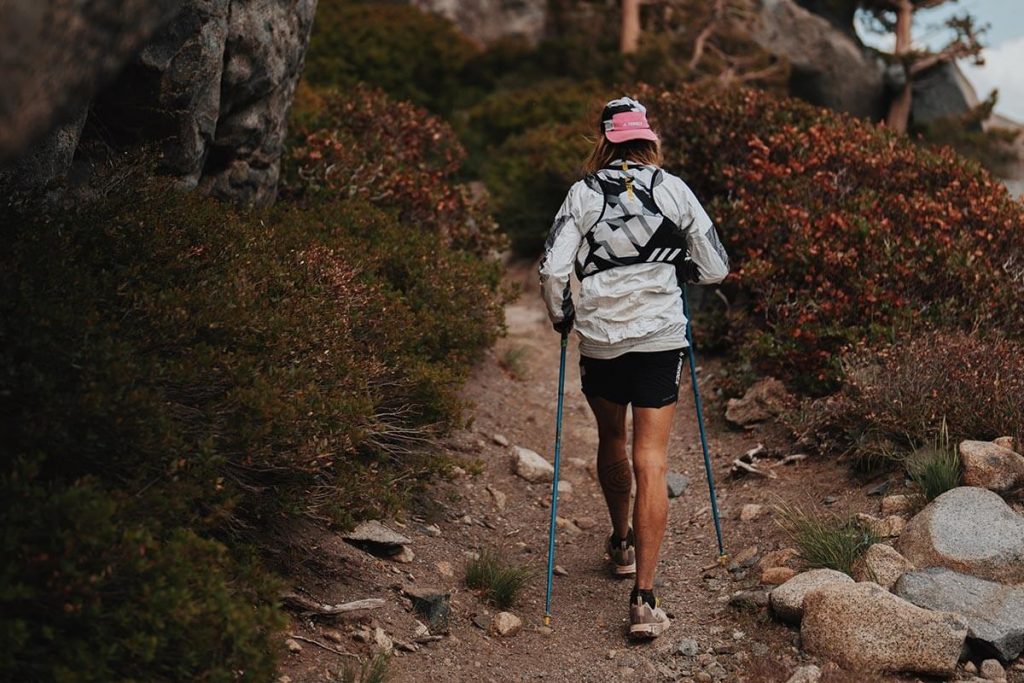How to Start Running Off-Road
If you think trail running only happens in the mountains, you’re mistaken.
Running off-road is about leaving the streets and running on a natural surface. We’ll give you 5 tips to make it easier to ditch tar for off-road running.
1. Look for the right trail running route
You don’t necessarily have to go into the wild for your next trail run. Look for a route that takes you through parks, on gravel paths, or across fields. You’ll find new areas away from where you usually run and get an introduction to running off-road. If you’re not that familiar with your surroundings, take a look at the map and get an idea of where you might find some trails.
Expert Tip:
Be free and run without a plan. Decide where you want to go according to how you feel; be spontaneous and try different running surfaces. Trail running is not necessarily about setting a PR; it’s also about experiencing your environment.
2. Train for new conditions
The biggest challenge you have in trail running is the different terrain you run on. It’s a good idea to develop your leg muscles if you want to run trails. Exercises to improve stability and balance help prevent injuries. You should also strengthen your ankles so you don’t end up twisting or spraining them.

Where does trail running happen?
In trail running, only 20% of the route should be on paved surfaces like asphalt and cobblestones. The rest is run on rougher terrain. The different parts of the route can be on gravel paths, trails in the woods, and single-track trails.
Are you ready for a bit of competition? Lace up your trail running shoes and compete against Gaia, a wild mountain lion, in this year’s Run Wild challenge!
3. Prepare for off-road running with bodyweight exercises
When you’re ready to prepare for your first trail run, try the following bodyweight exercises:
Stability and balance exercises:
- Plank: This full-body workout is a great way to strengthen your core.
- Single-Leg Stand: Stand on one leg and slowly come up onto your toes. As soon as you feel confident enough, you can try this exercise on an uneven surface.
- Single-Leg Deadlift: Stand on one leg and bend forward at the hips. Lift your other leg and stretch it out behind you until it’s at a 90° angle to the leg you are standing on.
Exercises to increase jump strength:
- Jump Lunges: Switch sides as you jump into these lunges.
- Single-Leg Jump: Stand on one leg and jump up and down or move forward as you jump.
- Speed Skater: Jump sideways from one leg to the other quickly like a speed skater.
- Box Jumps: Jump up onto a raised surface with both legs. (Want to become a box jump pro? Check out our box jump blog post.)
4. Start slowly
Since trail running usually involves a lot of uneven surfaces, your legs will get stronger than running on the road. Your body has to burn more energy to deal with the constant changes in conditions and surfaces. Take it easy on your first trail runs and keep it slow, so you aren’t gasping for breath right away. Over time you can start playing with different speeds on a variety of terrain (like fartlek).
5. Choose the right trail running shoes
The running shoes you wear for the road are fine for flat surfaces. But as soon as you start running steeper trails, you should think about getting shoes with good grip.
Remember:
Don’t tie your shoes too tight but snug enough so that you don’t slide around in them. Tuck the big loops of your laces into the lacing, so they don’t catch on branches.
There is a variety of trail running gear available to make your experience more enjoyable. You can store drinks or energy bars in special running packs, in case you are out for a longer run.
Caution — eyes on the ground!
Unlike when you run on the road, trails are full of hazards: roots, loose stones, or the wet, slippery forest floor make it essential to watch where you’re going when you run.
Would you like to learn more about trail running? We have the Top 3 Beginner Tips from the Pros for you.
***

